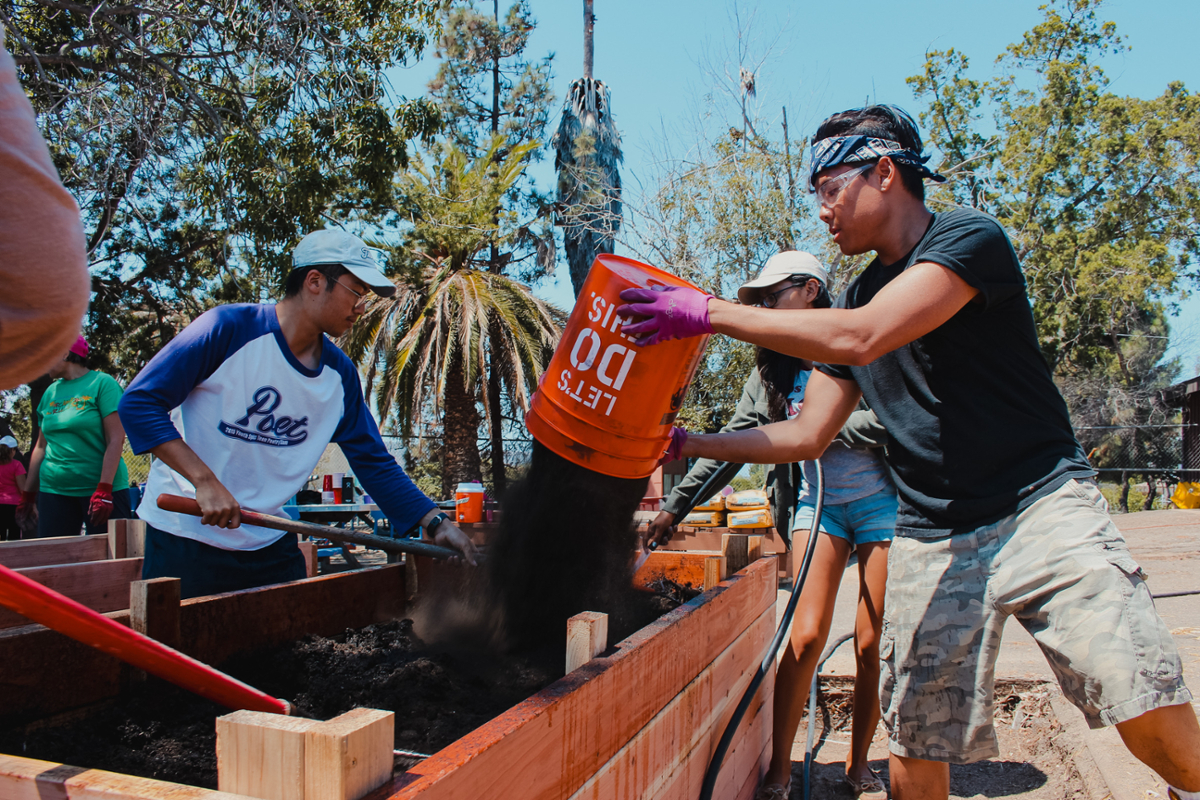BSFI 2016
Twenty-four interns from UCSD and 4 interns from across the University of California system participated in the 2016 two month paid Blum Summer Field Internship. In the third year of the BSFI Program students interned in the three UCSD Community Stations sites; in Los Laureles Canyon, at San Ysidro Casa Familiar and at EarthLab in Encanto. For the first time interns were divided into three teams that acted in separate locations. This enabled the teams to develop final projects with more depth and intention. Bellow is a description of the projects that were developed at the three Community Sations:
UCSD-Casa Community Station
Field coordinators: Elizabeth Hensley Chaney and Andrew Sturm
In San Ysidro interns found that the promotoras (community health advocates) were vital to their success as community-university mediators. They explored the crucial role of promotoras and to understand the real issues facing residents of San Ysidro. They found that members of the community of San Ysidro had expressed interest in starting a community garden. Past attempts had been made; however, due to accessibility issues these past attempts petered out. Interns also evaluated sites where food production took place in the community (mostly backyard garden plots). Alongside these food production evaluation efforts, they made note of vacant lots in the community where a future garden could potentially be developed. The establishment of Urban Agriculture Incentive Zones in the city of San Diego provided leverage for community organizations that seek to negotiate with property owners toward developing such projects. Through conversation with community members, the San Diego Master Gardeners’ Association, and Girl Scout Troop #5912 (the first bilingual GS troop in San Diego), the 2016 BSFI cohort constructed a series of raised garden boxes and an experimental vertical garden at the San Ysidro Community and Recreation Center. The garden boxes serve as a space for workshops that will be available to community members interested in gardening.
UCSD-EarthLab Community Station
Field coordinator: Camille Campion
An 8 minute video was created at the UCSD-EarthLab Community Station. In the video, the students showcase the five week D.E.E.P. science literacy camp, in which they participated. D.E.E.P. was a summer program that engaged K-5 graders in hands-on science learning. Students also present data that was collected on energy use and efficiency in the neighborhood of Encanto. The research was part of the UCSD EPIC project, funded by the California Energy Commission, to create a near zero net energy community in this marginalized region. Students realized that having local knowledge of a community is essential for engaging in mutually beneficial and reciprocal university-community partnerships. The UCSD EPIC project also aimed to engage local members, and the Blum Summer field interns were instrumental in designing community engagement strategies that fulfilled this goal.
UCSD-Divina Community Station
Field coordinator: Kyle Haines
Student interns designed a recreational and ecological center for an informal settlement community in the Laureles canyon in Tijuana. They considered how a bus stop would enable the park to become a transit point, creating an active safe space and safe path for community members. The bus stop was designed to promote and facilitate the use of public transportation by providing a safe and comfortable space for people to wait for and board local buses.
Additionally, students explored sustainability aspects of the Parque Fronterizo. They considered the use of bioswales and native species to control erosion and create more stability in the region, and finally designed infrastructural interventions for the park. More than anything, their goal was to design Parque Fronterizo as an enjoyable, sustainable, and social hub. As part of these goals interns in this group also designed a community garden. For this project they first did an assessments of the gardens in the field site as well as the open lots.
Interns also conducted formal interviews which helped shed light on the lack of access the community has to fresh fruits and vegetables. Once the interview process was done they convened a community-based garden committee comprised of active community members who had knowledge about gardening. The garden committee selected potential sites for the garden and will continue to play an active role in building and maintaining the garden.
